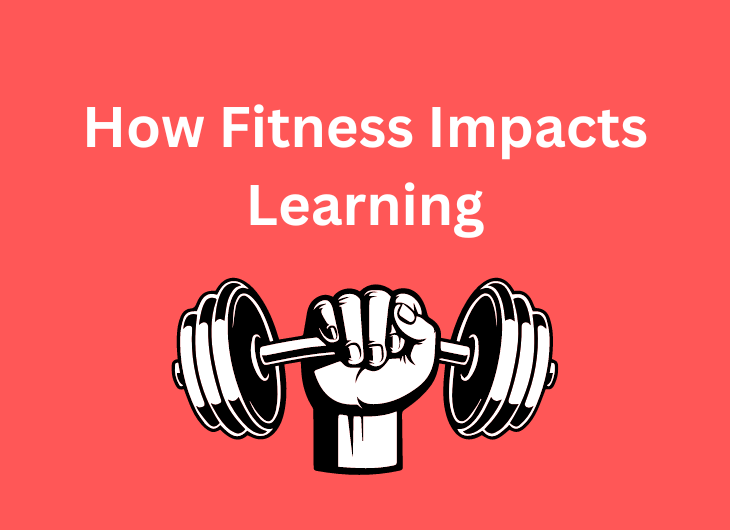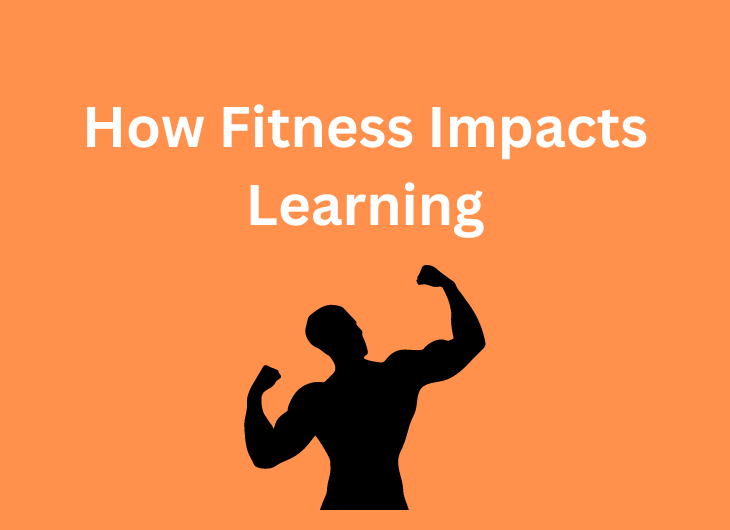Introduction: How Fitness Impacts Learning
In today’s fast-paced world, the importance of maintaining a healthy lifestyle cannot be overstated. While we often associate fitness with physical health, it also plays a pivotal role in enhancing cognitive abilities and learning. In this blog post, we will explore the fascinating connection between fitness and learning, shedding light on how exercise can improve memory, concentration, and overall cognitive function. Whether you’re a student looking to excel in academics or a professional seeking to boost productivity, understanding the relationship between fitness and learning can lead you to cognitive excellence.
The Science Behind the Connection
Before delving into the specific ways fitness impacts learning, it’s crucial to grasp the underlying science. Exercise has a profound impact on our brain’s structure and function. When we engage in physical activity, our body releases neurotransmitters like dopamine and endorphins, often referred to as “feel-good” chemicals. These chemicals help reduce stress and elevate mood, setting the stage for improved learning.
Furthermore, exercise promotes the growth of new brain cells in the hippocampus, a region vital for learning and memory. This neurogenesis, or the formation of new neurons, enhances cognitive abilities and contributes to better information retention. It also increases the brain’s plasticity, making it more adaptable and receptive to new information.
Fitness and Memory
One of the most remarkable ways fitness influences learning is through its impact on memory. Regular exercise can significantly boost both short-term and long-term memory. Here’s how:
1. Hippocampal Growth
As mentioned earlier, exercise stimulates the growth of new neurons in the hippocampus. This process enhances the brain’s ability to encode and consolidate memories. Individuals who engage in physical activity regularly tend to have a larger and more efficient hippocampus, which leads to improved memory retention.
2. Neurotransmitter Release
Exercise triggers the release of neurotransmitters, such as dopamine and norepinephrine, which play a crucial role in memory formation. These neurotransmitters strengthen the connections between brain cells, facilitating the transfer of information and making it easier to remember facts, concepts, and experiences.
3. Better Sleep
A good night’s sleep is essential for memory consolidation, and exercise can help with that too. Regular physical activity improves the quality of sleep, ensuring that your brain has the necessary downtime to process and store information effectively. Sleep is when the brain strengthens memories, making it an integral part of the learning process.
Enhancing Concentration and Focus
In today’s world of constant distractions, maintaining focus and concentration is a challenging task. However, fitness can be a powerful ally in this regard. Here’s how exercise helps:
1. Improved Attention Control
Physical activity has been shown to enhance the brain’s executive functions, including attention control. These functions are crucial for staying focused on tasks and blocking out distractions. Regular exercise helps individuals develop better cognitive control, making it easier to concentrate on learning activities.
2. Reduced Mental Fatigue
Sitting for extended periods can lead to mental fatigue and reduced productivity. Exercise can counteract this by increasing blood flow to the brain, delivering more oxygen and nutrients to brain cells. This refreshes the mind, making it more alert and better equipped to absorb new information.
3. Stress Reduction
Stress is a significant hindrance to learning. It can impair memory, disrupt concentration, and hinder problem-solving abilities. Fortunately, exercise is a natural stress reliever. When you engage in physical activity, your body releases endorphins, which act as natural mood lifters and stress reducers. This not only enhances your overall well-being but also creates a conducive environment for effective learning.
Stress Reduction
Stress is a major obstacle to learning and can have detrimental effects on both mental and physical health. Exercise is a proven method for reducing stress levels. Here’s how it works:
1. Cortisol Regulation
Exercise helps regulate the production of cortisol, a hormone that is released in response to stress. Elevated cortisol levels can impair cognitive function and hinder learning. Regular physical activity helps maintain cortisol at healthy levels, reducing the negative impact of stress on the brain.
2. Anxiety Reduction
Exercise has anxiolytic effects, meaning it can reduce anxiety levels. When you’re less anxious, your mind is more at ease and better able to focus on learning tasks. This leads to improved performance in academic or professional settings.
3. Enhanced Mood
The release of endorphins during exercise not only reduces stress but also enhances mood. A positive mood is conducive to effective learning, as it fosters a more optimistic and motivated mindset.
FAQs about How Fitness Impacts Learning
Q1. How much exercise is needed to experience cognitive benefits?
A1. The amount of exercise required varies from person to person, but research suggests that even moderate-intensity aerobic exercise for 30 minutes, five times a week, can significantly improve cognitive function.
Q2. Can any type of exercise improve learning, or are certain activities more effective?
A2. While any form of physical activity can provide cognitive benefits, aerobic exercises like running, swimming, and cycling have been shown to have particularly positive effects on learning and memory.
Q3. Can exercise help with specific learning challenges, such as ADHD or dyslexia?
A3. Yes, exercise can be beneficial for individuals with learning challenges. It can improve focus, attention, and cognitive control, which can help individuals with ADHD, dyslexia, and other learning differences.
Q4. Are there any age restrictions on the cognitive benefits of exercise?
A4. No, exercise can benefit individuals of all ages. It is never too late to start reaping the cognitive rewards of physical activity.
Conclusion: How Fitness Impacts Learning
In conclusion, the link between fitness and learning is undeniable. Regular physical activity improves memory and concentration and reduces stress and anxiety, creating a conducive environment for effective learning. Whether you’re a student striving for academic success or a professional looking to boost productivity, incorporating exercise into your daily routine can be a game-changer. By harnessing the power of fitness, you can pave the way to cognitive excellence and unlock your full learning potential. So, why wait? Lace-up those sneakers, hit the gym, and embark on a journey to a sharper mind and a brighter future.
Visit the link to read more: https://family-fitness-fun.com/the-importance-of-fitness-goals-to-you-as-a-student/





